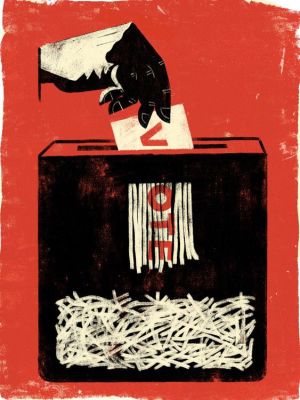Biography
In English
In Indonesian
In Makassar
Examples of work
In facing the elections, are the youth trapped in the web of apathy, binding them to indifference, or do they choose to ignite, kindling the spirit to actively participate in shaping the future of the Negara Kesatuan Republik Indonesia?
This question casts shadows on the paradox of youth participation in democratic processes. On one side, we see a generation ensnared in the web of apathy, fatigued by complex politics and feeling that their voices lack an impact. They may perceive elections as an arena far removed from their daily realities, choosing to ignore it rather than engage in the political battles that unfold.
However, on the other side, there are youths who choose to ignite, refusing to be victims of creeping apathy and attempting to find their voices amidst the chaos in the political world of the country. They see elections as an opportunity to shape their futures, determining policies that reflect their values and aspirations. These youths, far from being trapped in the web of apathy, become potential agents of change.
Understanding the difference between the two is crucial due to their influence on political dynamics and social development. Youths ensnared in the web of apathy tend to leave political space vacant, providing opportunities for established powers to dominate without critical scrutiny. On the other hand, ignited youths bring fresh energy and new perspectives, diversifying the political stage and promoting innovation.
In facing this challenge, efforts are needed to balance this paradox. Inclusive political education empowering youths to understand their roles in the democratic process can be the key to unraveling the web of apathy. Additionally, listening to and responding to the aspirations of the youth are critical steps in fostering enthusiastic participation.
In conclusion, whether the youth are trapped in the web of apathy or igniting in elections is a narrative we are collectively writing. Through reflection, open dialogue, and positive action, we can guide the youth toward active participation that shapes the future of democracy with enthusiasm and hope.

Enable comment auto-refresher